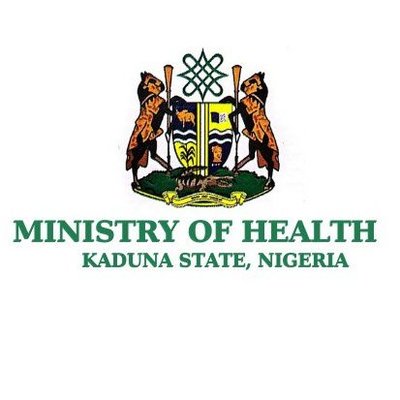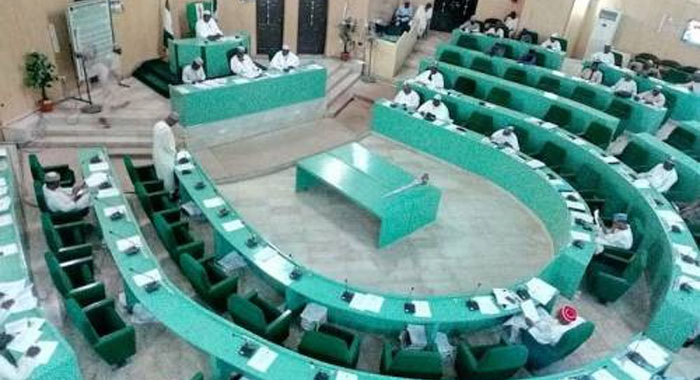Health
WAHO calls on member states to finance nutrition to achieve SDGs
The West Africa Health Organisation (WAHO), has called on member states to finance nutrition to attain Sustainable Development Goal 2 by 2030 in the region.
Dr Melchior Athanase, Director-General, WAHO, said this on Thursday in Abuja at the 17th ECOWAS Nutrition forum, with the theme: “Leveraging Sustainable Financing for Multisectoral Approaches: Accelerate Universal Access to Nutritious, Safe, Affordable and Sustainable Diets.”
The ECOWAS Nutrition Forum is a regional platform that brings together the major stakeholders in nutrition to review policies, practices and progress in the reduction of malnutrition and diet-related diseases in the sub-region.
Assembling and sharing relevant knowledge on access to nutritious, safe, affordable, and sustainable diets, including essential services in the Post-COVID-19 era across the ECOWAS region, will speed up progress for nutrition impact.
Athanase said that the 2030 agenda of SDGs obliged the region to make more effort for the financing of nutrition which must be one of the indisputable priorities of all member states.
“This is what justifies the choice of the theme of this Forum: Leveraging sustainable financing for multi-sectoral approaches: accelerating universal access to nutritious, safe, affordable and sustainable diets,” he said.
He said that indeed, the present framework of exchanges that the forum offers the region would allow it to free the genius-creators, for relevant analysis in the depths of the limits of good nutrition, which would be in perfect harmony with the pragmatic proposals expected on innovative and original financing mechanisms.
“This theme will therefore be an opportunity to examine the practices of collaborations with innovative and functional multi-sector approaches. This will ultimately lead to a synergy of actions for lasting effects that should lead to a significant impact on the financing of nutritional interventions,” he said.
According to him, the national nutrition focal points and the Technical and Financial Partners (PTF) took their time, to a critical and constructive assessment, to admit elements of evaluation and progress made identified country by country in the implementation of nutrition programmes, as well as the review of the recommendations of previous evaluations.
He said that discussions would also focus on Public Private Partnership (PPP) approaches aimed at improving the availability and access sustainably, to diversified foods, in an approach favouring the organic trend with an arduous richness in macro and micronutrients.
He said that the current context of security, humanitarian, socio-economic and even climatic crises in the region added to the consequences of the COVID-19 pandemic, challenges the region and challenges the subconscious.
“It is therefore very imperative to format an effective and efficient mechanism for sharing experiences.
“In this context, national investments are essential to enable countries to take ownership of the programmes and ensure their sustainability.
“We will also need a strong coordination of orientation and prioritization of investments for food and nutritional security with equity and justice towards our populations, for the establishment of a real ECOWAS of the peoples,” he said.
He said the right to adequate nutrition is one of the human rights, recognised by the UN, which ECOWAS respects in the fight against malnutrition in all its forms.
The ECOWAS Nutrition Forum is a regional platform that brings together key nutrition stakeholders biennially, to discuss nutrition policies and practices, progress in reducing malnutrition and diet-related diseases and innovative practices in the region.
About 250 nutrition experts from across the region are participating in the meeting, whose main objective is to strengthen multi-sectoral collaboration to improve financing and Universal Health Coverage (UHC) for nutrition.
According to the organisers, the forum will be an opportunity to examine innovative multisectoral collaboration practices that work best in terms of the synergy of action and sustainable financing of nutrition interventions.
Health
KDSG trains 180 Red Cross volunteers on Lassa Fever intervention

The Kaduna State Ministry of Health has begun a three-day training for 180 Red Cross volunteers on Lassa fever intervention.
The training, which is facilitated by the ministry and funded by the Red Cross, is meant to equip the volunteers selected from 5 LGAs in the state with necessary skills.
The volunteers were drawn from Zaria, Igabi, Kaduna South, Kaduna North and Chikun Divisions.
The State Epidemiologist, Dr Jeremiah Dikwu, said the volunteers were trained with the knowledge needed to massively intervene during cases of Lassa fever in the state.
He said that the intervention would include Risk Communication and Active Case Search, Psychological First Aid, Rodent Control and Hygiene Promotion for the next 3 months.
Dikwu said the training started with 30 volunteers on surveillance and would end with the training of 150 volunteers on Risk Communication and Community Engagement .
According to him, Lassa fever is a viral hemorrhagic fever transmitted by rats.
He added that Lassa fever has been known since the 1950s, but the virus was not identified until 1969, when two missionary nurses died from it in the town of Lassa in Nigeria.
Dikwu added that Lassa fever was caused by a single stranded RNA virus and disseminated systemic primary viral infection.
“The main feature of fatal illness is impaired or delayed cellular immunity leading to fulminant viraemia,” he said
The epidemiologist said that Lassa fever presented symptoms and signs indistinguishable from those of febrile illnesses such as malaria and other viral hemorrhagic fevers such as Ebola.
“It is difficult to diagnose clinically but should be suspected in patients with fever (e”38°C) not responding adequately to antimalarial and antibiotic drugs.
“The most useful clinical predictors of Lassa fever are fever, pharyngitis, retrosternal pain, and proteinuria for diagnosis; and fever, sore throat, and vomiting for outcome,” Dikwu said.
He said that Ribavirin and general support were needed.
“Ribavirin is almost twice as effective when given intravenously as when taken orally, and if given within six days of the start of illness it may reduce deaths by 90 percent.
“Dehydration, oedema, hypotension, and poor renal function are common; fluid replacement or the use of blood transfusion requires careful monitoring,” he said.
Dikwu said the volunteers would be carrying out Risk communication and Community engagement, Active Case Search, Psychological First Aid, Rodent Control and Hygiene Promotion
Health
Assembly passes Kano Pre-Marital Health Screening Bill


Kano State House of Assembly has passed a bill for a law to compel intending couples to undergo HIV, hepatitis and sickle cell anaemia screening before marriage.
The passage followed deliberations in the Committee of the Whole House during plenary session,
presided over by the Speaker, Ismail Falgore on Monday in Kano.
After deliberations, the lawmakers approved the 3rd reading of the bill, read by the Deputy Clerk, Alhaji Nasiru Magaji.
Shortly after passage of the bill, the Majority Leader of the house, Lawan Hussein (NNPP-Dala), stated that “any person
intending to marry shall first submit self for medical examinations.”
He said the bill was considered and passed after the 3rd reading, following various legislative processes.
The leader further said that the bill was passed because the state had been battling with different health issues, including
HIV because people go into marriages without medical screening.
He said that the bill, if signed into law, would save many lives and curb the spread of life-threatening diseases.
“The bill will safeguard the health of citizens by institutionalising pre-marital testing to check the spread of diseases
like hepatitis, HIV and sickle cell anaemia,” he added.
Health
WHO to begin vaccination against Human Papilloma Virus May 27 in Kogi


The World Health Organisation (WHO), says it plans to commence vaccination against Human Papilloma Virus (HPV) on May 27 in Kogi.
The state’s Team Lead of WHO, Dr Muktar Toyosi, said this when he led his team on an advocacy visit to the State Council of the Nigeria Union of Journalists (NUJ) on Wednesday in Lokoja.
Toyosi said that the vaccination was meant for girl child of between the age nine and 14.
He said the ongoing sensitisation was to keep the people informed, and educate them on the vaccination of their children to protect them against cervical cancer in future.
”Kogi falls within the second phase of the programme. We are soliciting for the cooperation of the media in educating the people of the state on the HPV vaccination.
“There need for girls child across the state to take the vaccination to safeguard their future.
“Although the vaccine was initially scarce and difficult to get, the good news now is that it has been made available by the government,” Toyosi said.
Also speaking, the State Technical Assistant for WHO, Dr Ahmed Attah, said that the HPV mostly affect women, adding that the vaccination remained a preventive measure against the disease.
Attah, a former state Chairman of the Nigeria Medical Association (NMA) and a former Chief Medical Director (CMD), Kogi Specialist Hospital (KSSH) Lokoja, urged parents and guardians to avail their children of the vaccination to justify government’s investment.
In his response, the Kogi NUJ Chairman, Mr Seidu Ademu, described the health sector as very critical, stressing that the vaccination was a right step in the right direction.
Ademu promised a robust partnership with WHO to enable the team to achieve its set goals.
He stressed the need to inform, educate and sensitise the general public on the need to embrace the vaccine by ensuring that girls within the age range were vaccinated.
-
capital market2 years ago
Rt.briscoe, FBNH, Others halts negative performance of stock market
-
Finance3 months ago
Court orders Sen. Victor Umeh to repay N136m bank debt to AMCON
-



 Abuja Update2 months ago
Abuja Update2 months agoUNDP, FG partnership needed to achieve inclusion, equity- Minister
-
Abuja Update1 month ago
Banks drive stock market performance with N147bn gain
-



 Business1 week ago
Business1 week agoTingo Group unveils Tingo Electric, Tingo Cola drink at Lagos launch
-



 Health2 weeks ago
Health2 weeks agoCapacity training will reduce migration of health workers- NPHCDA
-
News4 months ago
Oil thieves sponsoring malicious media campaign against Navy – Spokesman
-



 Infotech1 month ago
Infotech1 month agoWorld Backup Day: NITDA urges Nigerians to ensure backup of data




